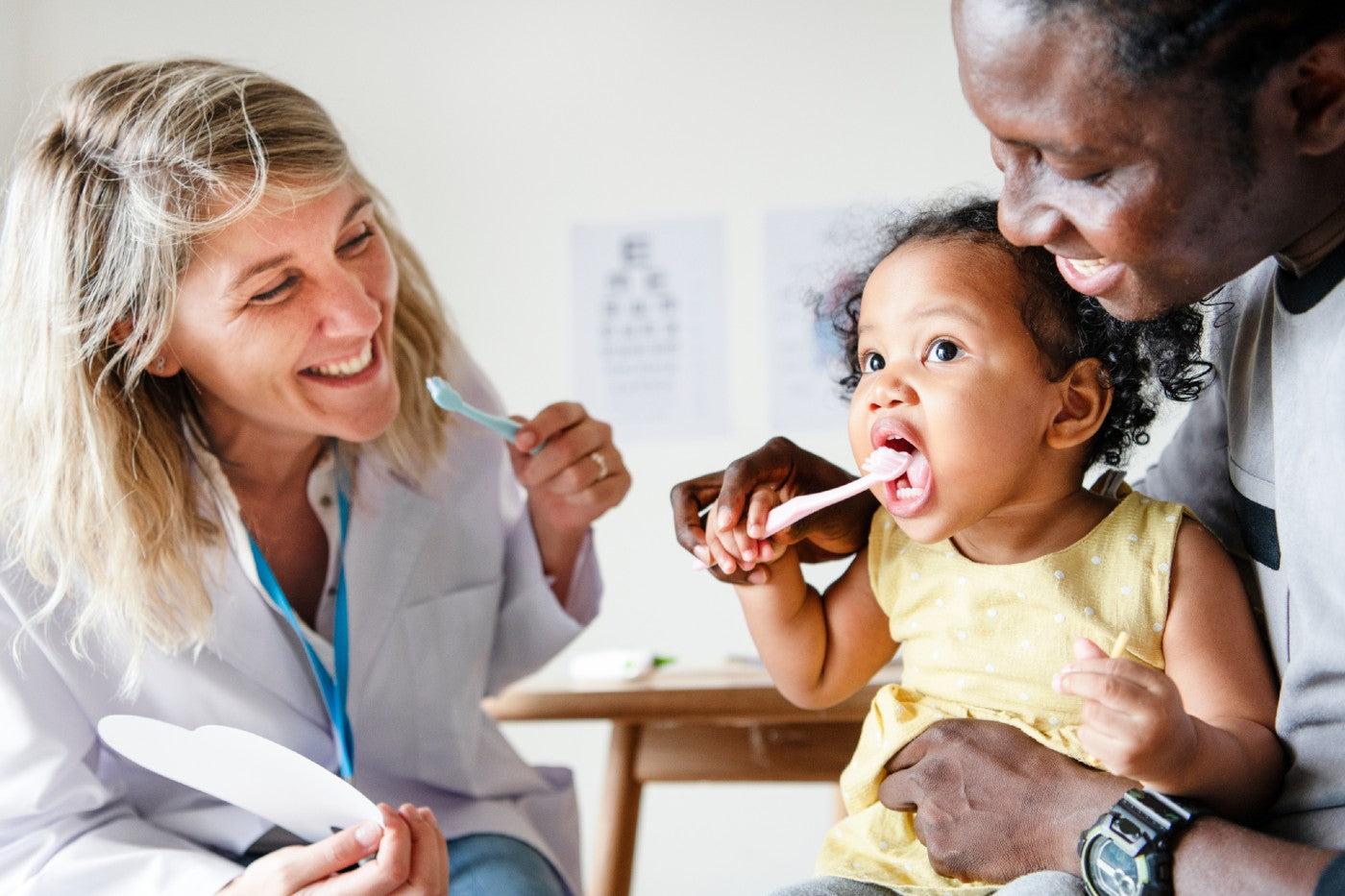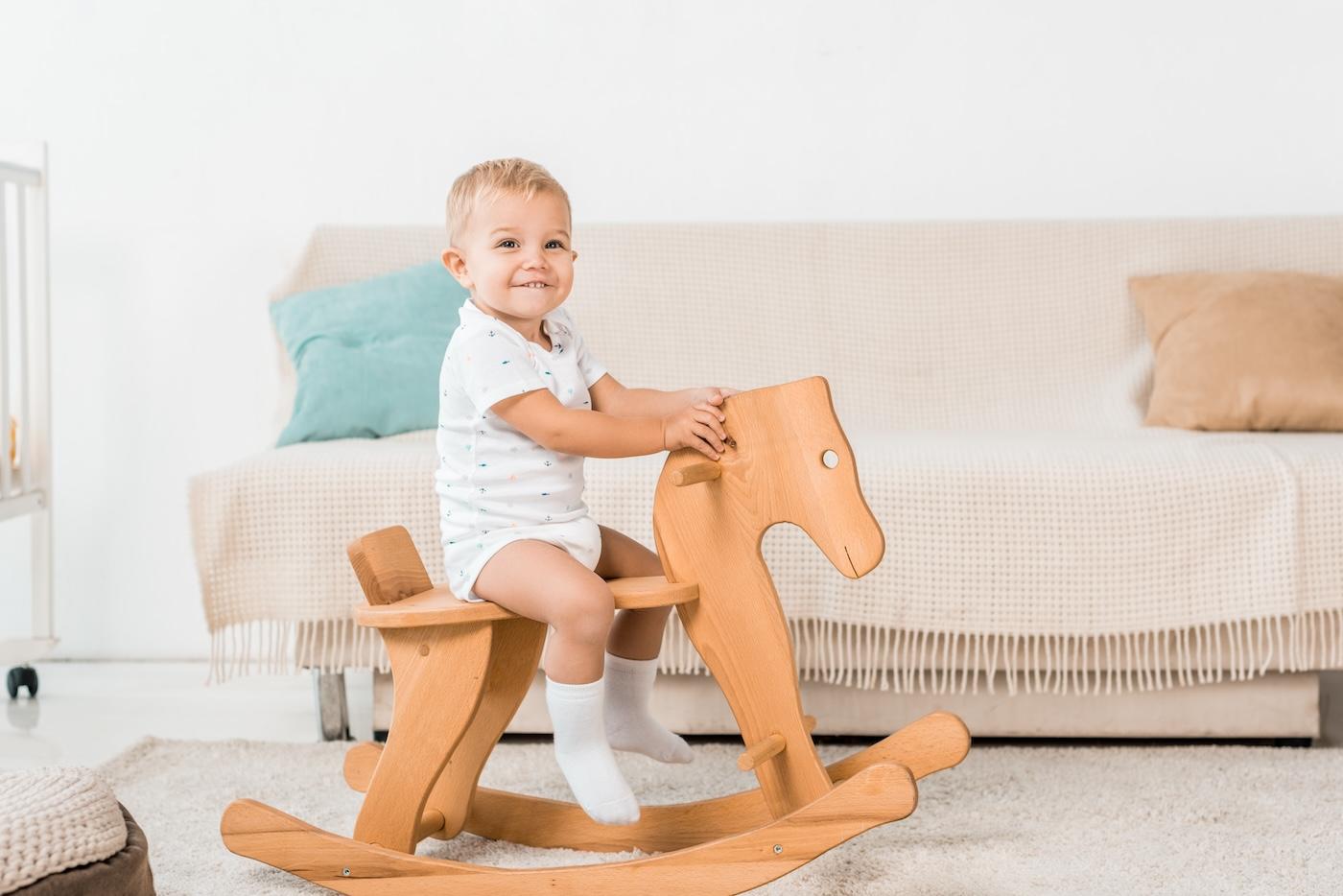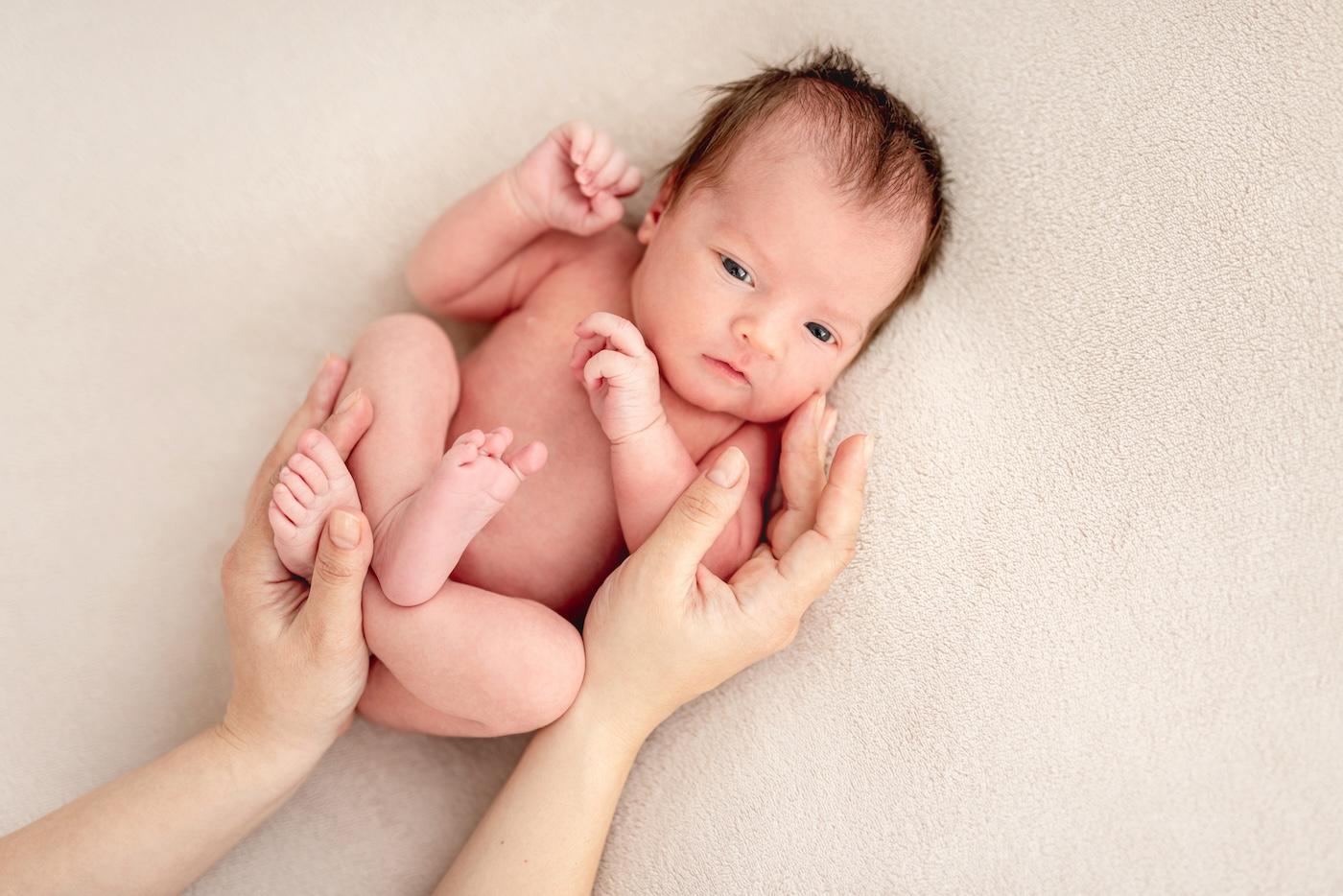BABY
Your Baby’s First Dental Visit
Do not be nervous! Your little one’s first visit to the dentist will be easy, informative, and preventative. Just be sure to get in by this age.

Written by
Happiest Baby Staff

You and your baby managed to survive the first round of teething! Congratulations! But what do you do now that your precious nugget’s adorable little first chompers have finally emerged? Yes, brush them, but are dental visits really in the cards already? If you are unsure you are not alone! Here is your guide to when to make that first appointment…and what to expect once you get there.
When do children need to visit the dentist for the first time?
Sooner than you think! The British Society of Paediatric Dentistry (BSPD) recommends that your child be examined by a dentist soon after their first tooth erupts…or by the age of one. Unfortunately, studies show that the average age when children actually first visit the dentist is three years old!
Perhaps this is because some parents are confused as to why a baby would need to see a dentist when their smile is only sporting one or two teeth. Here is why:
- Quells fears. When children visit the dentist early, they learn not to fear the dentist, which makes those future appointments go smoother.
- Learn about dental care. Children can learn early dental care habits that will help keep their teeth clean, healthy, and—fingers crossed—cavity-free.
- Spot problems early. When dentists catch potential problems early, they can intervene before those issues become more serious.
Do children need to see a paediatric dentist?
Need? No. General dentists who enjoy children can be a perfect fit. Just know that a paediatric dentist has two years specialty training following dental school and they only treat the smallest of patients. General dentists have about five weeks of training in treating kids.
How to prepare for your baby or toddler’s first dental visit:
Here is the thing: Your child has no reason to fear the dentist…they have never visited one before! So, it is up to you to set the stage for a positive experience. Here are some ways to do just that:
- Get the timing right. Choose an appointment time for when your child is at their most alert, happy...and well fed. That means it is best to avoid the dentist during nap or feeding times, when kids will likely be hungry and fussy.
- Call ahead. Waiting is hard for little ones. Before you head out the door, make sure your dentist is on schedule.
- Give a preview. If your child is old enough, talk about what they can expect, like the cool dental chair that goes up in the air and the fun sunglasses they get to wear. You can also play dentist at home, so your child can get used to someone looking at their pearly whites up close.
- Do this ahead of time. To make that first appointment go off without a hitch, see if you can fill out any paperwork before the appointment so you can focus solely on your child during the visit.
What happens at the first dental appointment?
Your child's first visit to the dentist is primarily a meet-and-greet to get everyone acquainted. You can expect the appointment to last around 30 minutes, and you will spend most of your time answering questions about the following:
- Family dentist history
- Teething
- Pacifier use
- Bottle and breastfeeding schedules and habits
- Oral hygiene
- Sleeping habits
Your child’s dentist will also give a quick, no-stress first exam. Typically, your first-timer can sit on your lap while you lounge in the dental chair. This can work wonders for keeping littles calm, especially if they are nervous about a near-stranger peering into their mouth. During the exam, the dentist will:
- Count teeth
- Check for cavities and other dental issues
- Assess development by looking at jaw, bite, gums, tongue, and the roof of your child's mouth
- Clean teeth with a soft toothbrush if plaque is found to demonstrate brushing technique
- Discuss a home dental-hygiene routine
Your child’s dentist might also offer a fluoride varnish treatment, which can help prevent, slow down, or stop tooth decay. (Fluoride is a mineral that works to strengthen tooth enamel.) Medical practitioners often apply a fluoride varnish to infants and toddlers starting when their first tooth appears (and through the age of five), but if your child’s doctor has not mentioned it, ask your paediatric dentist about it.
How often do toddlers need to go to the dentist?
Just like you, children should see a dentist once every six months. For toddlers, especially those who fear the dentist, it may be beneficial to inquire about visiting the dentist once every three months to establish trust and confidence.
Got more teeth questions? Here is help!
Why Do Toddlers Grind Their Teeth?
How to Brush Baby and Toddler Teeth
What Thumb-Sucking Has To Do With Dental Health
Toddler Teething and Night Waking
When to Expect Baby’s First Tooth…and Beyond!
Disclaimer: The information on our site is NOT medical advice for any specific person or condition. It is only meant as general information. If you have any medical questions and concerns about your child or yourself, please contact your health provider. Breastmilk is the best source of nutrition for babies. It is important that, in preparation for and during breastfeeding, mothers eat a healthy, balanced diet. Combined breast- and bottle-feeding in the first weeks of life may reduce the supply of a mother's breastmilk and reversing the decision not to breastfeed is difficult. If you do decide to use infant formula, you should follow instructions carefully.
SHARE THIS ARTICLE
PARENT PICKS
Bestsellers



















